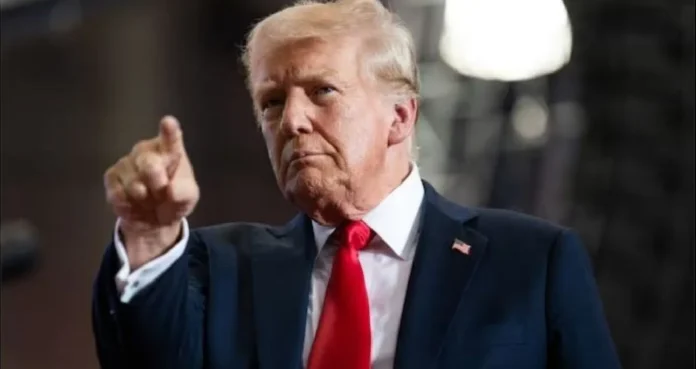By Kenneth Tiven
The Donald Trump administration has just ratcheted up a multi-faceted attack on America’s mainstream media using the assassination of his right-wing supporter Charlie Kirk as the rationale.
First, the chairman of the Federal Communications Commission, appearing on a right-wing podcast, personally threatened ABC Television with drastic actions over a remark by talk show host Jimmy Kimmel related to Kirk’s death. Previously, administration threats had led to CBS Network cancel late night talk show host Stephen Colbert at year’s end.
Then the President went after The New York Times with a lawsuit resembling a rage-filled monologue dictated to a lawyer. The defamation suit claims justifications exist for a penalty of $15 billion dollars (yes, billion) for stories and a book he hates written by Times reporters.
Concurrently, Attorney General Pam Bondi announced a crackdown on hate speech, which is not a legal category in America where Freedom of Speech is specifically protected by the 1st Amendment to the Constitution.
Trump, who describes himself only in superlatives, opens the lawsuit by congratulating himself for winning the 2024 election:“the greatest personal and political achievement in American history.” His lawyers go on to add his estimate of the value of his “one-of-a-kind, unprecedented personal brand” at more than $100,000,000,000. It lists his “hundreds of history-making media appearances” including WrestleMania V, Home Alone 2, and a cameo on the soap opera All My Children. His lawyers apparently did just what he demanded.
For all of this, he complains, the newspaper defamed him and cites its
“deranged endorsement of Kamala Harris,” as well as an opinion piece from 2021 calling for an end to the Senate filibuster — which Trump himself has also demanded.
The book is Lucky Loser detailing how he squandered a multi-million dollar inheritance with his “fake-it-till-you-make-it” rise to power, his obsession with style over substance, and a fortuitous television show–The Apprentice–that rescued him from self-inflicted ruin.
One chapter explains producers for The Apprentice arriving at Trump Tower in Manhattan to find “a musty carpet odor that followed them like an invisible cloud,” chipped furniture, and a CEO’s desk which “bore no evidence of work, no computer screens or piles of contracts and blueprints, just a blanket of news articles focused on one subject: himself.”
Under the landmark Supreme Court case 1964 case, New York Times v. Sullivan, defamation of a public figure requires “actual malice”, defined as proof that the speaker either knew that that the statement was false, or spoke with reckless disregard for the truth. Trump simply concludes that the authors “knew that Trump Tower in general, and, in particular, the office on the twenty-sixth floor, were in excellent condition and had no such defects.”
Trump insists that his name is “synonymous not only with New York City real estate but also with worldwide excellence, luxury, and opulence.” He’s clearly very sensitive about the suggestion that executive producer Mark Burnett had to “reinvent” him, burnishing his image to make him seem more successful, polished, and hardworking than he was. The suit claiming, “only President Trump had the necessary combination of actual business achievement, charisma, fame, personality, intellect, and instinctual comfort in front of a television audience that could drive the show to television heights,” he protests peevishly, adding that “in truth, President Trump was the only man who could have delivered the results that Burnett and NBC sought.”
Trump is also furious with reporters at the Times for meticulous reporting on his family’s crooked business practices, based on years of tax returns provided by his niece Mary Trump. In original reporting in 2018, they documented the sham company Fred Trump used in the 1990s to pad maintenance bills, funnel cash to his kids, and justify hiking the rent in his rent-controlled apartments. These allegations reappear in the 2024 book as further evidence that infusions of cash from his dad, not his own business acumen, were required.
Journalists reported in 1991 that his father, Fred Trump, bought $3 million of chips at one of Trump’s casinos to save his son from defaulting on a bond payment. Trump likes the publicity and ignores the costs of court cases. After losing a defamation suit against Timothy O’Brien, author of the book TrumpNation: The Art of Being The Donald, Trump expressed no regrets: “I spent a couple of bucks on legal fees, and they spent a whole lot more. I did it to make his life miserable, which I’m happy about.”


